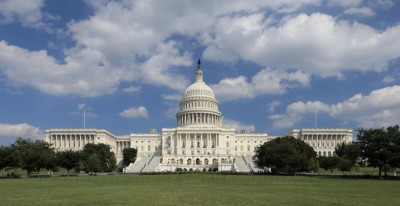(Source: Realtor.com)
The US Government, unable to approve a continuing resolution for funding government operations, shut down on September 30th for the first time in 17 years. What does this spell for a Realtor or the housing market in general? It means that many government organizations and programs have closed down or have drastically slowed their operations. Below is a list of some entities that may or may not be affected by the shutdown and how it may affect your business:
IRS: The IRS is closed and has suspended the processing of all forms, including tax return transcripts (Form 4506T). These transcripts are required for many kinds of loans, including FHA and VA.
SSA: The Social Security Administration is closed and has suspended most customer service functions. According to the SSA Contingency Plan, verifying Social Security numbers through the Consent Based SSN Verification. Service will also be suspended during the shutdown, a further complication for mortgage processing.
FHA: HUD’s Contingency Plan states that FHA will endorse new loans in the Single Family Mortgage Loan Program, but it will not make new commitments in the Multi-family Program during the shutdown. FHA will maintain operational activities including paying claims and collecting premiums. Management & Marketing (M&M) Contractors managing the REO portfolio can continue to operate. You can expect some delays with FHA processing.
VA Loan Guaranty Program: Lenders will continue to process and guaranty mortgages through the Loan Guaranty program in the event of a government shutdown. Expect some delays during the shutdown.
Flood Insurance: The Federal Emergency Management Agency (FEMA) confirmed that the National Flood Insurance Program (NFIP) will not be impacted by a government shutdown, since NFIP is funded by premiums and not tax dollars. Changes to the flood insurance program scheduled to take effect on October 1 will be implemented as scheduled.
Rural Housing Programs: For the U.S. Department of Agriculture programs, essential personnel working during a shutdown do not include field office staff who typically issue conditional commitments, loan note guarantees, and modification approvals. Thus, lenders will not receive approvals during the shutdown. If the lender has already received a conditional commitment from the Rural Development office, then the lender may proceed to close those loans during the shutdown. A conditional commitment, which is good for 90 days, is given to a lender once a USDA Underwriter approves the loan. If a commitment was already issued, the funds were already set aside and the lender may close the loan at its leisure. If Rural Development has not issued a conditional commitment, the lender must wait until funding legislation is enacted before closing a loan. It is important to note that the traditional definition of “rural” for qualifying communities for assistance will be continued in effect during the shutdown. We expect that language to continue the current definition will be included in whatever funding measure is eventually enacted.
Treasury: The Making Home Affordable program, including HAMP and HAFA, will not be affected as the program is funded through the Emergency Economic Stabilization Act which is mandatory spending not discretionary.
Analysts have suggested that a quick resolution to the temporary government shutdown should not adversely affect the market long-term and will have a minimal impact, if any, on homebuyers.



